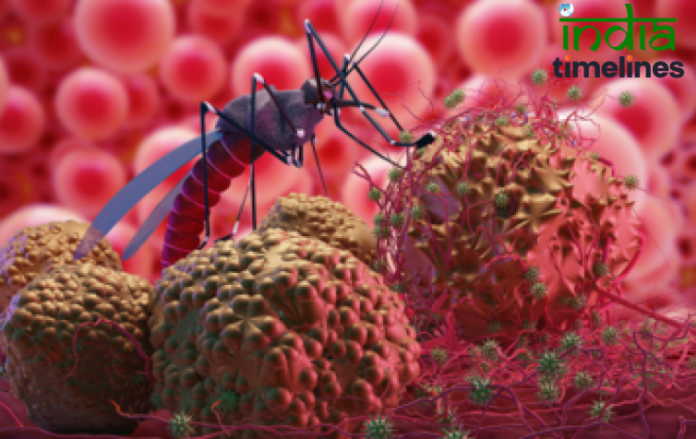
Zika virus cases are on the rise in India, and it’s raising alarms across the country. If you’re wondering what exactly is causing this uptick and what you can do to protect yourself and your loved ones, you’re in the right place. In this article, we’ll dive into the causes, symptoms, precautions, and treatments for the Zika virus, giving you all the information you need to stay informed and safe.
Understanding the Zika Virus
What is the Zika Virus?
The Zika virus is a mosquito-borne flavivirus that was first identified in Uganda in 1947. It primarily spreads through the bite of an infected Aedes species mosquito, the same type that carries dengue, chikungunya, and yellow fever.
History and Background
Initially confined to narrow equatorial regions in Africa and Asia, the virus started spreading across the Pacific and into the Americas, where it caused a significant outbreak in 2015-2016. Now, it’s making its presence felt in India, adding to the country’s public health challenges.
Causes of Zika Virus Spread
Transmission Methods
Zika virus primarily spreads through mosquito bites. However, it can also be transmitted from mother to child during pregnancy, through sexual contact, blood transfusion, and even laboratory exposure.
Role of Mosquitoes
Aedes mosquitoes, particularly Aedes aegypti, are the primary carriers. They breed in standing water and are most active during the early morning and late afternoon, making it crucial to control mosquito populations to prevent the spread.
Human-to-Human Transmission
Though less common, human-to-human transmission can occur, particularly through sexual contact. Pregnant women who contract the virus can pass it to their unborn children, leading to severe birth defects.
Symptoms of Zika Virus Infection
Common Symptoms
Most people infected with the Zika virus do not exhibit symptoms. For those who do, the symptoms are usually mild and can include:
- Fever
- Rash
- Headache
- Joint pain
- Conjunctivitis (red eyes)
- Muscle pain
Severe Symptoms and Complications
In rare cases, Zika can lead to severe neurological complications such as Guillain-Barré syndrome. For pregnant women, the virus poses significant risks, including microcephaly and other severe fetal brain defects.
Precautions to Prevent Zika Virus
Personal Protective Measures
Protecting yourself from mosquito bites is crucial. Here are some personal protective measures:
- Use insect repellent
- Wear long-sleeved shirts and long pants
- Stay in places with air conditioning or use window and door screens
- Sleep under a mosquito net if you’re outside or in a room without screens
Community-Wide Strategies
Community-wide efforts are also essential in combating the Zika virus. These include:
- Eliminating standing water where mosquitoes can breed
- Community clean-up campaigns
- Educating the public about the importance of mosquito control
Treatment for Zika Virus
Medical Treatments Available
There is no specific treatment for the Zika virus. Management focuses on relieving symptoms:
- Rest
- Hydration
- Pain relievers such as acetaminophen (avoid aspirin and non-steroidal anti-inflammatory drugs until dengue can be ruled out)
Home Remedies and Supportive Care
In addition to medical treatments, supportive care at home can help:
- Get plenty of rest
- Drink fluids to prevent dehydration
- Take paracetamol to relieve fever and pain
Impact of Zika Virus on Pregnant Women
Risks to the Unborn Child
Pregnant women infected with Zika virus can transmit it to their fetus, potentially causing serious birth defects like microcephaly, a condition where a baby’s head is significantly smaller than expected.
Guidelines for Pregnant Women
Pregnant women should take extra precautions to avoid mosquito bites, avoid travel to areas with active Zika virus transmission, and seek medical advice if they suspect they might have been exposed to the virus.
Government and Health Organizations’ Role
Initiatives by the Indian Government
The Indian government has ramped up efforts to control the spread of the Zika virus. Initiatives include:
- Surveillance and reporting systems
- Public awareness campaigns
- Mosquito control programs
Role of International Health Organizations
Organizations like the World Health Organization (WHO) and the Centers for Disease Control and Prevention (CDC) provide guidelines, support, and resources to help manage and prevent Zika outbreaks globally.
Impact on Public Health in India
Current Statistics and Data
As of recent reports, several states in India have reported new cases of Zika virus, prompting increased public health measures. Detailed statistics help track the spread and inform strategies to combat the virus.
Long-Term Public Health Implications
The rise in Zika cases could have significant long-term implications, including increased healthcare costs, the need for ongoing surveillance, and the potential for future outbreaks if control measures are not maintained.
Travel Advisories and Guidelines
Advisories for Travelers
Travelers to and from areas with active Zika virus transmission should be aware of the risks and take precautions such as using insect repellent, wearing protective clothing, and staying in accommodations with proper mosquito control measures.
Precautions for Returning Travelers
Returning travelers should monitor their health and seek medical advice if they develop symptoms. Pregnant women or women planning to become pregnant should be particularly cautious and consult healthcare providers about potential risks.
Zika Virus vs. Other Mosquito-Borne Diseases
Comparison with Dengue, Malaria, and Chikungunya
Zika virus shares some similarities with other mosquito-borne diseases like dengue, malaria, and chikungunya, but it also has unique aspects:
- Dengue: More severe symptoms, higher fatality rate
- Malaria: Caused by parasites, treatable with specific medications
- Chikungunya: Severe joint pain, but no severe birth defects linked
Community Awareness and Education
Importance of Public Awareness
Raising public awareness is crucial in the fight against Zika. Educated communities are more likely to take preventive measures and reduce the spread of the virus.
Educational Campaigns
Effective educational campaigns include distributing information on mosquito control, symptoms, and precautions. Schools, community centers, and media can play significant roles in spreading awareness.
Scientific Research and Advances
Recent Studies and Findings
Recent studies have provided valuable insights into the Zika virus, including its transmission, effects, and potential treatments. Continuous research is essential for developing effective vaccines and therapies.
Future Prospects for a Vaccine
While there is currently no vaccine for the Zika virus, ongoing research is promising. Several vaccine candidates are in different stages of development, offering hope for better prevention in the future.
Personal Stories and Case Studies
Experiences of Those Affected
Hearing personal stories from those affected by the Zika virus can provide a deeper understanding of its impact. These stories highlight the challenges faced by individuals and families dealing with the virus.
Case Studies from Different Regions
Case studies from various regions in India and around the world offer insights into how different communities are managing the Zika virus and the effectiveness of various control measures.
Conclusion
In conclusion, the rise in Zika virus cases in India is a serious public health concern that requires immediate attention. By understanding the causes, symptoms, precautions, and treatments, we can better protect ourselves and our communities. Staying informed, taking preventive measures, and supporting ongoing research and public health initiatives are crucial steps in combating this virus.
FAQs
What is the Zika virus?
The Zika virus is a mosquito-borne virus that can cause mild symptoms in most people but poses significant risks to pregnant women and their unborn children.
How can one prevent Zika virus infection?
Preventing Zika virus infection involves avoiding mosquito bites by using insect repellent, wearing protective clothing, and eliminating standing water where mosquitoes breed.
What should pregnant women do to avoid Zika?
Pregnant women should take extra precautions to avoid mosquito bites, avoid traveling to areas with active Zika transmission, and seek medical advice if exposed to the virus.
Are there any effective treatments for Zika?
There is no specific treatment for Zika virus infection. Management focuses on relieving symptoms through rest, hydration, and pain relief.
What steps are being taken by the government to control the spread?
The Indian government is implementing surveillance, public awareness campaigns, and mosquito control programs to combat the spread of the Zika virus.

































